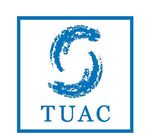Exiting the pandemic and building back fairer through multilateralism: Labour 7 Statement to the G7 Leaders' Summit 2021
←
→
Page content transcription
If your browser does not render page correctly, please read the page content below
Exiting the pandemic and building
back fairer through
multilateralism: Labour 7
Statement to the G7 Leaders’
Summit 2021
Exiting the pandemic …
As the G7 Leaders meet on 11-13 June, prospects for global recovery after the
pandemic are still fragile. The failure to ensure vaccine access across the globe
threatens lives and livelihoods, increasing the risk of a resurgence of the virus and its
variants. The G7 must commit to assist poorer countries in building production
capacities for free, transparent and universal access to vaccines, testing, and treatment
to all, including refugees, asylum seekers and migrants, working with World Health
Organisation leadership and through committing to a temporary suspension of
intellection property rights at the WTO (a TRIPs waiver) and the prevention of trade
barriers for vaccines, vaccine components and PPE. This is a ‘public good’ issue and
should be treated as such – with the highest levels of corporate accountability and
transparency over contracts.
Trade unions call on Leaders to:
• Step up international cooperation on the pandemic, including scientifically, on
manufacturing and distribution of vaccines and testing, medical supplies and
assistance. The G7 should support the WHO and WTO efforts, increase COVAX
1capacity substantially, support a waiver of the TRIPs regulations at the WTO and
reject vaccine nationalism, recognising that no one is safe until we are all safe. The
G7 should recognise Covid-19 as an occupational disease by implementing and
following ILO occupational health and safety conventions that must be recognized
as fundamental ILO conventions in line with the ILO Centenary Declaration, and
take all necessary steps to safeguard the health of all workers including via paid sick
and care leave, adequate PPE provision and measures for a safe return to the
workplace.
• Exiting the crisis has to go hand in hand with rebuilding public health systems, with
no return to the austerity which left us underprepared for the pandemic and with
less resilient labour markets and higher inequalities . This means significant public
investments into the public health and care sector (from childcare to long-term
care) to improve its resilience and working conditions, and support emerging
economies and developing countries in the same endeavour through international
cooperation and the establishment of a Global Social Protection Fund.
… and Building Back Fairer …
Despite the success of job protection schemes and income support, millions of workers
still face unemployment, under-employment or precarious work, and a downgrade in
their working conditions. If support is phased out too quickly, millions of workers face
the loss of their jobs and incomes. Many contributors to the L7 Summit welcomed the
G7 intention to “build back better”, but they also warned that without serious
considerations of the weaknesses in both our economies and our societies, and without
deliberate, focused international efforts to address them, we would build back a more
unequal and unsafe world of work. Quality jobs retention and creation should be a “key
theme” at the G7 Summit. Leaders should reaffirm their commitment to full
employment. This Summit should be the opportunity to come together and agree on
these objectives, looking forward towards COP26.
All workers continue to be exposed to enormous risks, not only in the frontlines of
healthcare, but in protecting our food security and providing other vital services. The
G7 must be a moment for leaders to express not only their gratitude, but to recognize
the value of these jobs, by committing to improve working conditions, increase pay,
and increase public investment into healthcare, education, broader public services and
research. We call on Leaders to acknowledge the value of social dialogue and collective
bargaining in delivering quality jobs and a sustainable and inclusive recovery. The L7 –
in collaboration with the C7, W7, and Y7 – put the following priorities to the G7
Employment Task Force and calls on Leaders to make commitments that:
• Recognise and reward keyworkers’ contributions, including through decent pay and
universal sick pay coverage
• Make a strong statement on tackling racism and discrimination, in the workplace
and society
• Steer a recovery that promotes decent work, while recognizing the importance of
job retention schemes and their continuation for affected sectors
• Prioritise investment in quality jobs in green infrastructure and public investment in
care and the health sector through coordinated plans
2• Promote youth employment in quality jobs and address women’s labour market
exclusion, participation and pay gaps
• Include Just Transition plans in country’s Nationally Determined Contributions
(NDCs) to the COP26 process
• Support investment in active labour market programmes and lifelong
learning, while establishing or improving universal minimum wage floors in G7
countries
• Work with the G20 on responsible business conduct and on universal social
protection for all workers, irrespective of employment status, via effective
contributory systems.
So, to build back fairer, not just better, the L7 further
calls on Leaders to:
• Safeguard jobs and incomes in the short-term and create the conditions for
recovery and more resilient economies and labour markets by prolonging or
extending crisis support measures as long as needed, and target social groups hit
hardest by the crisis with income support and measures that reduce household
costs (low-income, non-standard workers, self-employed, women, youth, migrants
and refugees). This includes quality job creation and active labour market policies
that reach those in need, including migrants and NEETs, including via investment
into public employment services, in line with ILO Convention n°88.
• Tackle income and wealth inequalities by strengthening labour market institutions
(incl. minimum wages and collective bargaining) and strengthen legislation to tackle
precarious work, including setting out regulation that can secure decent work for
platform workers.
• Re-affirm the critical role of the state –- for financing critical areas via effective tax
collection and progressive taxation for public services and social protection
including universal health coverage, sick and care leave, unemployment support
and parental leave.
• Provide leadership towards implementing the Paris Climate Agreement with a view
to the COP26 and endorse future investments that create quality jobs via climate
friendly employment plans, industrial strategies and just transition strategies
designed with social partners that ensure protection and training for those working
in high carbon industries. Leaders should use their enhanced NDCs to make
ambitious commitments, but must also set out how they will support developing
and lower income countries affected by climate change/ climate migration.
Developed countries are not meeting the target of providing US$ 100 billion a year.
• Enhance green, care, health, education and digital public infrastructure spending by
matching the most ambitious plans in the G7 – and in doing so take into account
regional, local and community interests - and foster coordination on industrial
policies that lead to more inclusive and green economies, and that close digital
divides through targeted public investments and procurement;
• Work with social partners at national level and follow-up on the G7 Tripartite
Declaration.
3… through Multilateralism
The L7 encourages the G7 to revive multilateral solutions and work collectively to pave
the way towards a sustainable recovery firmly based on democratic values, social justice
and a New Social Contract, not only across G7 countries but across the world. It is
about rebuilding economies and societies with the ambition to fight inequalities and
climate change under a new model of growth and more responsible and resilient global
supply chains governed by labour rights and mandated due diligence. Further to the
priorities listed above:
• The rise of far-right and authoritarian governments around the world put workers'
rights at risk. Our shared democratic principles go beyond the choice of
government, and include a tradition of open, inclusive societies. The G7 must
support this vision, and stand firm on rule of law principles and human rights, both
within societies of G7 countries and by making a strong call on labour rights
worldwide, including along global value chains. They should acknowledge that
social dialogue and collective bargaining are at the heart of democratic values,
underpinned by ILO conventions 87 and 98, and that without workplace democracy
we risk a further decline in democratic participation and trust in policy making. The
G7 should support action that builds on unionisation and collective bargaining as
fundamental tools in the fight for racial justice in the economy and in tackling
discriminations on the grounds of gender, race, against LGBTQ+ communities,
migrants, asylum seekers and refugees, and people with disabilities.
• Narrowly targeted G20-led efforts have not adequately addressed the issue of debt
sustainability. The G7 should support expansion of debt relief initiatives to include
private creditors and multilateral debt and make middle-income countries eligible.
G7 countries should lead the donation of IMF Special Drawing Rights to IMF trust
funds that support debt relief and a fair recovery. ODA should be sustained at or
above 0.7 per cent with a specific focus on food security, building strong public
services and helping countries pursue the same objectives that are needed in G7
countries to exit the crisis and build back fairer, without prescribing failed structural
reforms and austerity measures.
• The G7 has a key role to play towards the adoption of a strong agreement for the
reform on international taxation rules, currently under discussions at the G20/ OECD
Inclusive Framework. The G7 should express a clear support for a robust minimum
tax floor of at least 25% to raise much needed public revenues and halt the mutually
destructive tax race to the bottom. Furthermore, a better redistribution of wealth
and more public investments can be promoted via fairer and more progressive
taxation systems including with a tax on excessive profits profits and measures to
address tax avoidance by cross-border digital platforms. In the longer run,
discussions must continue with a view to find a sustainable solution on the basis of
unitary taxation and fair allocation rules.
• G7 Leaders should put the fair trade and responsible business conduct (RBC)
agenda back on the G7 radar, starting with this Summit, and strengthen existing
international instruments that enforce labour rights and mandatory due diligence
with enforceable labour and environmental standards in trade and investment
treaties and agreements, and World Trade Organisation rules. As a foundation, they
must enforce International Labour Organisation (ILO) standards on decent work,
build on the UN Guiding Principles on Business and Human Rights, and ensure
4domestic industries that create quality jobs are protected from unfair trade
competition. Trade agreements and WTO rules must also ensure protections for
public services and sovereignty to allow governments to legislate in the public
interest.
• We encourage Leaders to follow up the G7 declaration with international
institutions, including the ILO, the OECD and the IMF and encourage collaboration,
policy coherence and multilateral responses to the crisis. Specifically, empower the
ILO to ensure respect for employment rights in partnership with other multilateral
organisations.
The L7 represents national trade union centres from G7 countries. This year, it is
coordinated by the Trades Union Congress (TUC), the International Trade Union
Confederation (ITUC) and the Trade Union Advisory Committee to the OECD (TUAC).
5You can also read





















































